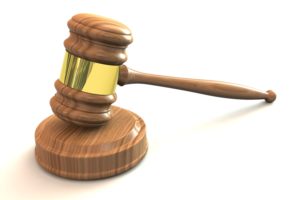
Throughout history, people have used protesting as a way to stand up for what they believe in. In doing so, it is important to know what rights you have. Continue reading to learn more about your rights as a protester in the United States.
Can my Free Speech be Restricted?
The First Amendment of the United States Constitution allows the freedom of speech. Even if the content of the speech is controversial, no restrictions can be made. However, it is important to understand it does not protect all types of free speech in any circumstance. Police officers and government officials have the right to place non-discriminatory “time, place and manner” restrictions that must apply to all speech, no matter the point of view.
These rights are the same for counter-demonstrators as well. While this is true, they should not physically disrupt the event they are protesting. The police are permitted to keep both groups separate from one another while still allowing them to remain in the same environment.
Where Can I Protest?
All expressions of freedom of speech are allowed in traditional “public forums.” This can include the street, sidewalks, and parks. It can also occur in public locations that the government opens up to speech activities, such as plazas in front of government buildings.
On the other hand, protests can only take place on private property if allowed by the owner. However, the property owner can designate certain rules regarding freedom of speech on their grounds. If these rules are violated, the property owner can order the protester off their property and have them arrested for trespassing if they refuse to go.
Is a Permit Needed to Protest?
Permits are not needed for protests unless a certain event requires it. This can include:
- A march or parade that does not stay on the sidewalk and requires blocking traffic or closing down a street
- A large rlly that requires the use of sound amplifying devices
- A rally at a designated park or plaza
Many permit procedures require an application to be filed weeks ahead of time. However, if the event is in response to recent events, the First Amendments disregards the advance notice requirement. A permit cannot be denied if an event is controversial or expresses unpopular views.
Can I Take Pictures or Video of a Protest?
A person has the right to photograph anything in plain view if they are lawfully present in a public space. On private property, the owner can place their own rules regarding pictures or videos. Police officers do not have the right to confiscate or view the content of pictures or video if they do not have a warrant. However, they do have the right to order citizens to stop their activities if they are getting in the way of law enforcement operations.
What do I do if I Believe my Rights Were Violated?
If you believe your right to protest was violated, the first thing that should be done is to take pictures and/or video of the injustice you witnessed or experienced. Also write down all the details you are able to remember. This can include badge numbers, patrol car numbers, and the agency in question. In addition to this, obtain any contact information from witnesses to the injustice, such as their name, phone number, email, etc. Once this is done, you can file a complaint with the agency’s internal affairs division or civilian complaint board. Furthermore, contact an experienced New Jersey criminal defense attorney who is here to help if your rights have been violated in any way.
Contact our Firm
Our firm understands how serious criminal and personal injury cases are. We are prepared to guide you towards a favorable outcome because we believe false accusations or preventable injuries should never cause a person harm. This is why those who require experienced legal counsel in New Jersey should do themselves a favor and contact The Law Office of Andrew S. Maze today for any criminal and personal injury matters.